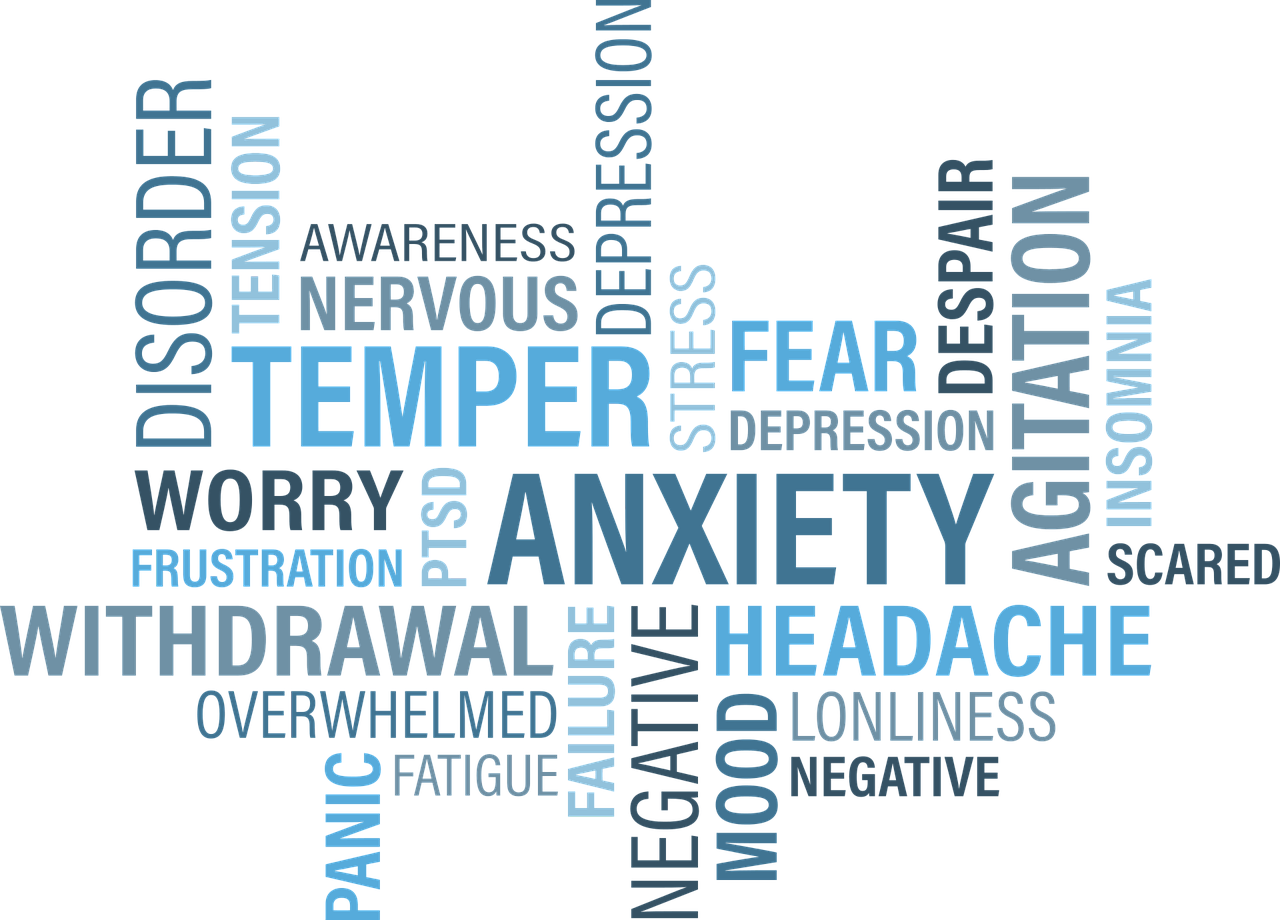At Mindforge Foundation, we are dedicated to supporting and nurturing the mental well-being of young individuals. As the world rapidly changes and new pressures arise, mental health challenges in youth have become more prevalent, causing serious concern among parents, educators, and mental health professionals alike. Teenagers today face a unique set of challenges that impact their mental health, from academic pressures to social media influences. It is crucial to identify these struggles, understand their causes, and provide the necessary support to help youth navigate these turbulent years.
Table of Contents
The Growing Concern of Mental Health Issues in Adolescents
Teen mental health issues have been steadily rising in recent years. With the constant evolution of technology, shifting societal norms, and increasing academic pressure, adolescents are facing an environment that exacerbates mental health struggles. These challenges can manifest in various forms, from anxiety and depression to eating disorders, self-harm, and suicidal thoughts. According to recent studies, 1 in 5 adolescents experience some form of mental health disorder, yet only 20% of them receive the treatment they need.
Common Mental Health Challenges in Youth
Mental health issues in adolescents can be complex and vary from one individual to another. However, there are some common teen mental health issues that most young people face:

1. Anxiety
Anxiety disorders are among the most common mental health challenges in youth. Adolescents often struggle with general anxiety, social anxiety, and performance anxiety. These issues can stem from the pressure to succeed academically, social expectations, or even the uncertainty about their future.
2. Depression
Teenagers can experience depression that goes beyond just feeling sad or down. Teen depression can manifest as persistent feelings of hopelessness, lack of energy, difficulty concentrating, and even physical symptoms like sleep disturbances or appetite changes. It’s essential to recognize that depression can severely impact a teenager’s ability to function in daily life.
3. Self-Harm
A troubling trend among adolescents is self-harming behaviors, often as a coping mechanism for emotional distress. Self-harm can include cutting, burning, or other forms of physical harm to the body. While it may seem like a way to relieve pain, it can worsen mental health in the long run and should be addressed promptly.
4. Eating Disorders
Adolescence is a period of rapid physical and emotional changes, and some young individuals may develop eating disorders as a way of coping with body image issues or societal pressures. Anorexia, bulimia, and binge eating disorder are all common eating disorders that can affect teens.
5. Substance Abuse
As teens seek ways to cope with emotional turmoil, some may turn to drugs and alcohol. Substance abuse can worsen mental health issues, creating a dangerous cycle of dependence and mental distress.
6. Suicidal Thoughts and Behaviors
One of the most alarming mental health issues in adolescents is suicidal thoughts or behaviors. It’s essential to recognize the signs early and intervene with support and professional help to prevent tragic outcomes.
Causes of Mental Health Challenges in Youth
There is no single cause for the rise in teen mental health issues. A combination of biological, environmental, and societal factors contribute to the mental health challenges adolescents face. Some of the primary causes include:

1. Academic Pressure:
The intense pressure to perform well in school and prepare for college or future careers can overwhelm many teens. The fear of failure, coupled with high expectations from parents and teachers, can lead to stress, anxiety, and depression.
2. Social Media and Peer Pressure
Social media platforms have become an integral part of teenage life, but they also bring about a unique set of challenges. The constant comparison to others, cyberbullying, and the pressure to fit in or maintain a curated online image can negatively impact self-esteem and emotional well-being.
3. Family Dynamics
Family issues, such as divorce, financial stress, or unhealthy family relationships, can significantly affect a teen’s mental health. Teens may feel neglected, abandoned, or unsupported, leading to emotional distress and mental health challenges.
4. Trauma and Abuse
Adolescents who have experienced physical, emotional, or sexual abuse, or who have witnessed traumatic events, are at a higher risk for developing mental health disorders. Trauma can leave lasting emotional scars that manifest as anxiety, depression, or PTSD (Post-Traumatic Stress Disorder).
5. Genetics and Biology
Genetics can play a role in the development of mental health issues. Adolescents who have a family history of mental illness are more likely to experience similar struggles. Biological factors, such as imbalances in brain chemistry, can also contribute to conditions like depression or anxiety.
6. Isolation and Loneliness
Many teenagers experience feelings of loneliness, especially as they navigate changes in their social lives. These feelings of isolation can exacerbate mental health challenges, leading to depression and anxiety.
The Impact of Mental Health Challenges on Youth
Mental health challenges in youth can have a profound impact on various aspects of a teenager’s life. When left unaddressed, these issues can affect academic performance, relationships, and overall life satisfaction. Here are some potential consequences:

1. Academic Struggles
Mental health issues can interfere with a teenager’s ability to concentrate, manage their time, and perform well in school. This can create a vicious cycle of stress, poor grades, and lowered self-esteem.
2. Relationship Difficulties
Teens with mental health challenges may struggle to build healthy relationships with peers, family, and romantic partners. Isolation and communication breakdowns can make it harder to connect with others and develop meaningful bonds.
3. Risky Behaviors
Mental health issues can lead to risky behaviors, such as substance abuse, self-harm, or unsafe sexual practices. These behaviors can have long-term consequences for a teen’s physical and emotional well-being.
4. Long-Term Mental Health
If left untreated, mental health issues in adolescence can continue into adulthood, affecting one’s ability to function in work, relationships, and daily life.
How Mindforge Foundation Can Help
At Mindforge Foundation, we understand the challenges that youth face today. Our mission is to provide the necessary support and services to help young individuals manage their mental health and navigate these challenging years. Here’s how we can help:

1. Mental Health Counseling
Our team of licensed therapists and counselors is here to provide individual therapy for teenagers dealing with anxiety, depression, and other mental health issues. We create a safe space for them to express their feelings and learn effective coping strategies.
2. Support Groups
Group therapy sessions allow teens to connect with others facing similar struggles, offering peer support and reducing feelings of isolation.
3. Parent and Family Support
We offer resources and counseling for parents to help them understand and support their teen’s mental health needs. We also provide guidance on how to foster open communication and create a supportive home environment.
4. Educational Resources
We provide workshops and seminars for schools and communities, raising awareness about mental health challenges in youth and offering strategies for prevention and early intervention.
5. Crisis Intervention
In cases of severe mental health crises, our team is equipped to provide immediate support and connect teens with emergency resources and treatment.
Conclusion:
Addressing mental health challenges in youth is more important than ever. With the increasing prevalence of teen mental health issues, it is vital that parents, educators, and mental health professionals work together to provide the support and care that adolescents need. At Mindforge Foundation, we are committed to helping youth overcome these obstacles and build a brighter, healthier future.
If you or someone you know is struggling with teenage mental health issues, don’t hesitate to reach out to Mindforge Foundation. Our team is here to provide support, resources, and guidance to help navigate the complexities of adolescent mental health. Together, we can create a future where every young person has the tools they need to thrive.

Yes it’s true. Nowadays it is a pressing problem.
Thanks for sharing.
Addressing youth mental health issues is crucial for a better future. Awareness and support can make a real difference!